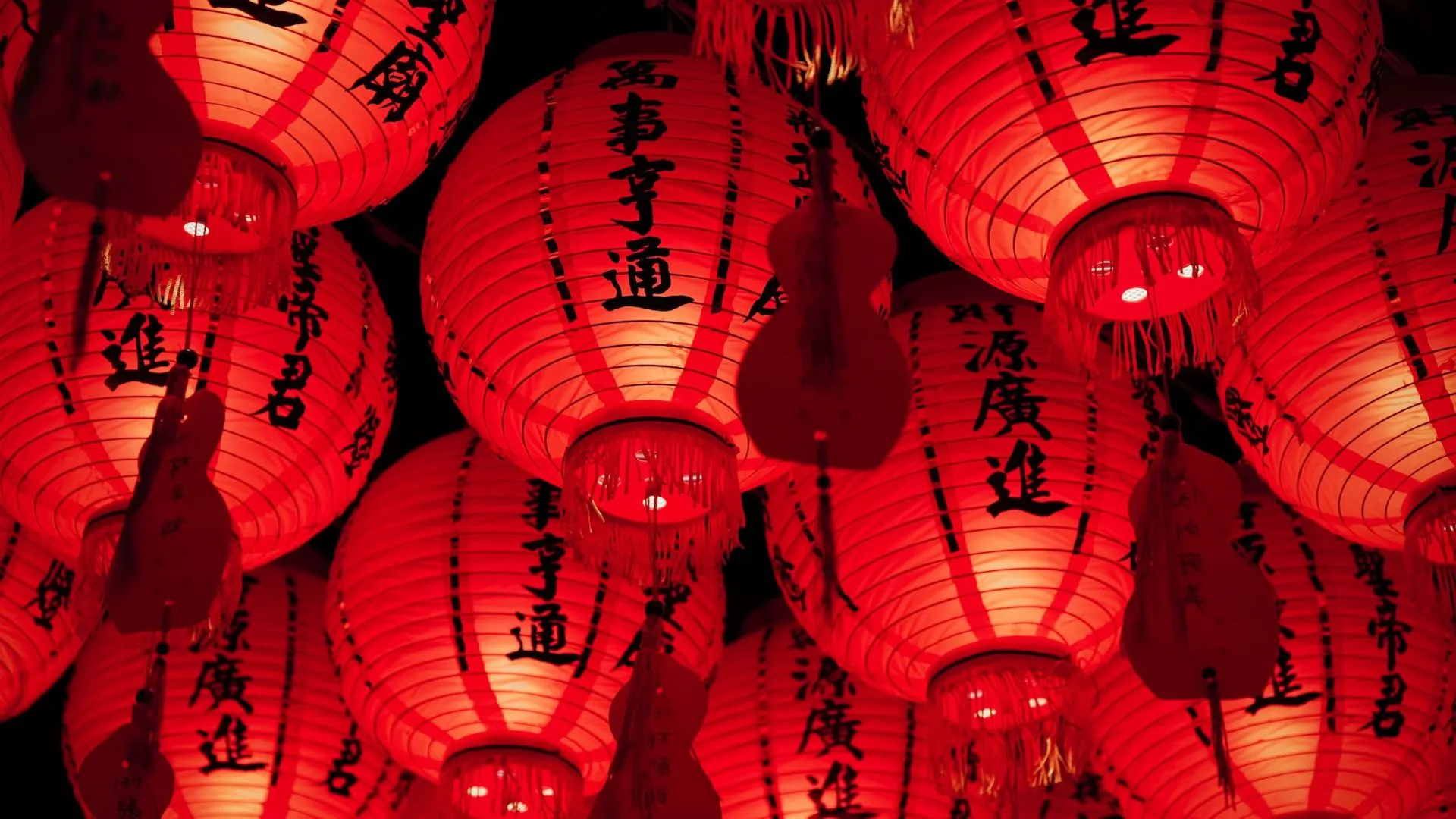Chinese New Year, also known as the “Spring Festival” (春节; Chun Jie), is the most significant among all Chinese festivals. The holiday is determined by the lunar calendar; therefore, its date changes each year. The celebration starts on the first day of the lunar calendar and ends on the fifteenth – Lantern Festival. Chinese New Year 2025 will take place from January 29th to February 12th.
What is Chinese New Year?
Spring Festival is the most solemn festival in Chinese culture. Even before the start of the holiday, the Chinese begin thorough preparations, such as cleaning the house, paying off debts, ending disputes, or finalizing any unfinished businesses. All of this is in order to start the new year in the best possible way. The actual holiday should be celebrated among the closest family members.
One of the most important Chinese New Year’s traditions is a family feast, consisting of many “lucky” dishes, such as Chinese dumplings (饺子; jiaozi), symbolizing wealth. The front door is decorated with the Chinese character Fu (副), meaning blessing and good fortune. Additionally, red lanterns can be spotted everywhere, as according to Chinese culture, red is believed to bring happiness and prosperity. Therefore, another important custom is giving red envelopes (红包; hongbao), a gift of money wrapped in red paper. However, due to the rapid growth of the Internet and QR codes in modern China, traditional hongbao are being replaced by their electronic equivalents.
Chinese New Year 2025 – Migration
Considering Spring Festival is a family holiday, everyone returns home for a family reunion. Therefore, around that time takes place the world’s largest annual migration, also known as the spring migration (春运; chunyun). For about 40 days, streets are crowded, public transportation is filled to the brim, and ticket prices rise significantly. Due to the huge number of workers coming back to their hometowns, not only ordinary travelers but also anyone importing goods from China will be affected by the holiday.
Chinese New Year 2025 and sourcing from China
The first seven days of Chinese New Year are considered an official public holiday. Therefore, reaching Chinese contractors becomes almost impossible, as the majority of businesses limit operations, with some even halting their activities altogether. The truth is that Chinese New Year celebrations can last up to weeks, resulting in major shipping delays. Moreover, the increase in demand for such products leads to considerably higher prices. Additionally, many manufacturers decide to increase production before the start of the holiday in order to stock up and maximize profits. However, such drastic actions oftentimes result in poor quality of offered goods.
Chinese New Year 2025 – Tips for importers
The most important piece of advice for importers is to finalize orders ahead of time, no later than November, otherwise, they will most likely suffer from major delays. However, it is recommended to contact manufacturers to double-check their specific deadlines.
If placing an order this early is not an option, importers must prepare themselves for shipping delays. Due to the possibly poorer quality of goods manufactured just before the start of the holiday, it is recommended to perform a thorough quality control to make sure they meet the client’s requirements.
Due to the importance of guanxi (关系), loosely translated as relationships in Chinese business culture, importers should send Chinese business partners New Year wishes. Such a small but significant gesture will help maintain a good relationship between the two parties. Keep in mind that Chinese New Year is a time for relaxation, resulting in ineffective communication with Chinese contractors. However, one should refrain from persistently contacting their business partner and try to be patient.
Chinese New Year – Summary
To sum up, Chinese New Year plays a significant role in Chinese culture, which both travelers and importers should take into consideration when planning business affairs or trips during that time. It is strongly advised to start preparations early enough to avoid higher prices and delays.
